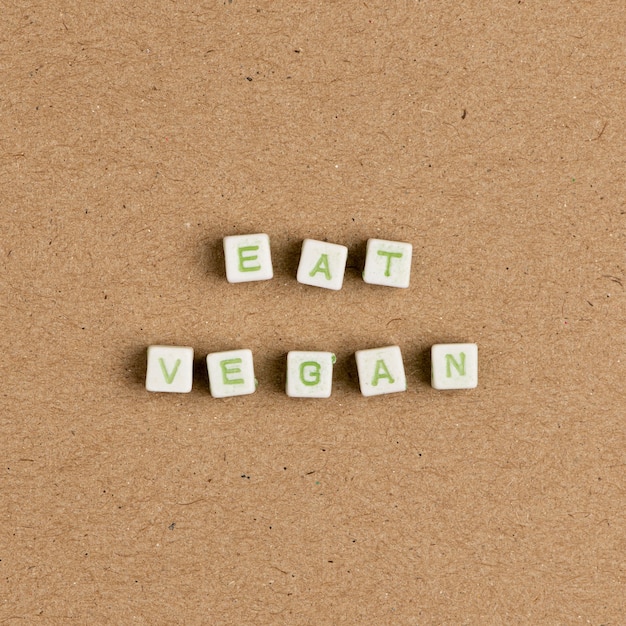
Did you try Veganuary this year or are you considering going vegan permanently? Dr. Gemma Newman has some helpful tips.
There are so many diets out there—low fat, high fat, low carb, high carb, vegan, paleo, keto—it’s hard to keep track. So, which diet is the best?
Veganuary is catching on more than ever. In 2018, about 170,000 people signed up, showing a 183% increase from 2017. Last year, over 250,000 people took the challenge, and this year, that number is likely higher.
But is a vegan diet healthy, and how does it compare to other diets we hear about? There’s a lot of confusion around nutrition, often fueled by media, food companies, and even health professionals.
Most people agree on the benefits of eating lots of fruits and vegetables, minimizing processed foods, and cutting back on sugary drinks, processed meats, white bread, and such. However, when it comes to diet, people often stick with what they know and say “everything in moderation.” This isn’t always the healthiest mindset. Just like we don’t suggest smoking in moderation, sugary drinks and processed meats shouldn’t be consumed regularly.
The World Health Organization (WHO) classifies processed meats as a class 1 carcinogen, meaning they can cause cancer. So, moderation doesn’t make them safe.
To simplify things, Dr. David Katz of the American College of Lifestyle Medicine gathered top nutrition scientists to reach some common ground. They agreed that a diet rich in vegetables, fruits, beans, nuts, seeds, whole grains, and water is key to good health.
Heart disease remains a major health issue. A whole-food, plant-based diet is the only diet proven to reverse coronary artery blockages within weeks, as seen in studies like the Lifestyle Heart Trial and the Mount Abu Heart Trial.
Switching from a Western diet to a plant-based one can seem tough, but it’s doable. Here are some practical steps to get started.
You can explore cookbooks like “So Vegan in 5” by Roxy Pope and Ben Pook, which offers over 100 simple recipes with just five common ingredients, or “BOSH!” by Henry Firth and Ian Theasby, featuring more than 80 healthy vegan recipes. They’ve become quite popular, with some of their recipe videos viewed over 50 million times.
Using social media to explore vegan can also provide inspiration. Gradually replace your favorite meals with plant-based versions. Turn a chicken curry into a chickpea curry, a beef Bolognese into a lentil Bolognese, or a Mexican chili into a three-bean chili.
Start small by making plant-based breakfasts two to three times a week, including switching out dairy in your tea or coffee. Then, gradually incorporate plant-based lunches and dinners. Over time, you’ll find yourself developing new, healthy eating habits.
Switching to a completely whole-food, plant-based diet can bring benefits within two to three weeks. Your body might initially experience some bloating or gas as your gut adjusts, but that’s normal.
Both the American Dietetic Association and the British Dietetic Association support well-planned plant-based diets for all age groups, including for disease prevention. These diets can lower the risk of heart disease, cancer, respiratory disorders, allergies, and infections.
We live in a world where soil quality has declined due to intensive farming practices, leading to nutrient-deficient diets. A Western diet often lacks essential nutrients like magnesium, folate, and fiber, and it is associated with obesity and other chronic diseases. A whole-food, plant-based diet can be more nutrient-dense, especially using the “nutritarian approach,” which focuses on foods rich in vitamins, minerals, fiber, and antioxidants.
However, a fully plant-based diet may require certain supplements, particularly vitamin B12, which is crucial and not found in plant foods. Adults need at least 10mcg daily or 2000mcg weekly to safely prevent deficiencies related to heart health. B12 can be obtained through fortified foods or supplements.
Vitamin D is also essential, especially in regions with limited sunlight. About 1000-2000iu per day is generally recommended.
Omega-3 fatty acids (EPA/DHA), particularly from algae supplements, are recommended for heart health without the contaminants found in fish.
Ground flaxseeds are a great addition to a plant-based diet, providing omega-3s and helping lower blood pressure.
Dr. Gemma Newman has worked in medicine for 15 years and specializes in various healthcare fields.
Remember, a well-planned plant-based diet isn’t just good for personal health but also offers broader benefits for the planet. If you’re considering this lifestyle change, start slowly, adapt gradually, and enjoy the journey to better health.